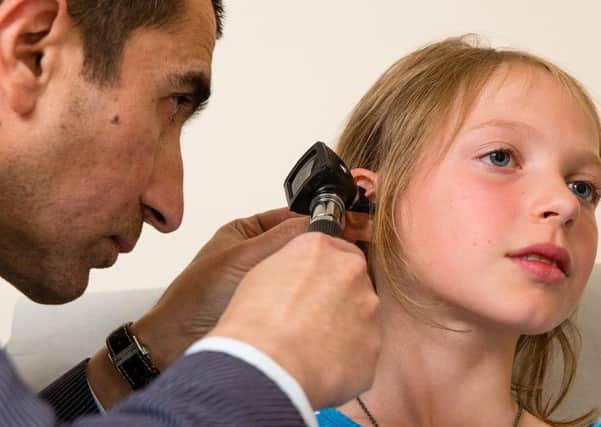Kevan Christie: Ministers' response to GP crisis is not good enough


The Rural GP Association of Scotland (RGPAS) and partners at independent practices have been quick to highlight what they see as serious flaws in the new funding formula.
They believe this will lead to huge cuts to rural NHS primary care services, with around 90% of practices in the north of Scotland having their allocated funding reduced by up to two-thirds.
Advertisement
Hide AdAdvertisement
Hide AdThis has led to the Scottish Government and the BMA being accused of a “gradual nationalisation of Scottish General Practice” by three GPs who are partners at a medical practice in Inverness. The mood music among the rural GPs is that the contract is heavily weighted in favour of general practice in urban areas. GPs in the more remote parts of the country say patients, particularly those who are elderly, vulnerable or on low wages, rely more on local GP health services in order to access appropriate care.
On the back of this, Health Secretary Shona Robison announced on Monday that 15 extra places will be available on the new graduate medicine course to contribute towards the aim of creating 800 new GPs over the next decade. This will increase the intake for students on the new course from 40 to 55.
READ MORE:
Students on the ScotGEM course will be offered a “return of service” bursary, worth up to £16,000, in exchange for working in NHS Scotland for up to four years.
All well and good, at least the Scottish Government is taking some kind of action and, according to their own figures, this will lead to an additional 330 medical graduates by 2028.
However, the problem with this latest announcement is that the widely recognised, projected shortfall figure for GPs in Scotland is for the nation to be 856 doctors down by 2021 – in just four years’ time.
The Scottish Government’s solution to this is to try and create 330 new GPs in the next decade. Without wanting to use cliched terms like “it’s not rocket science” – clearly anyone can see that the Scottish Government’s figures are to say the least a bit skew-whiff.
GPs are retiring in droves, their numbers in Scotland have according to the BMA remained “largely static”, the population is increasing and the number of older patients with multi-morbidities is rising. Along with generally increased workloads, this has led many doctors to question whether the job is really for them.
READ MORE:
There is an ongoing GP recruitment crisis, everyone knows this. Factor in Brexit – and the potential loss of doctors from EU countries – and we’re really struggling to attract people into general practice.
Advertisement
Hide AdAdvertisement
Hide AdThe Scottish Government’s answer to this is to announce a further 15, count them 15, places on their flagship graduate medicine course.
How about another 150 places at the very least? This would make some kind of dent in the recruitment nightmare which shows no signs of abating anytime soon, as the Scottish Governemnt wrestle with a whole raft of new initiatives from a multi-disciplinary approach to primary care to the ongoing debate around what’s “realistic” healthcare. The thing is they’ve already identified a potential solution to the GP recruitment crisis – a fast-track approach to attracting existing graduates into the profession. Now all they need to do is fund it properly.